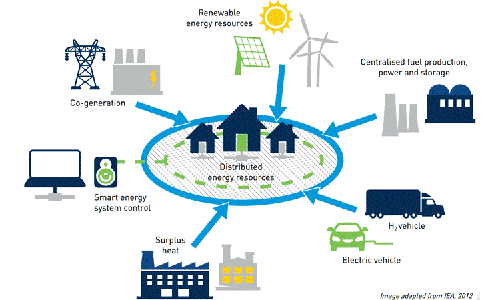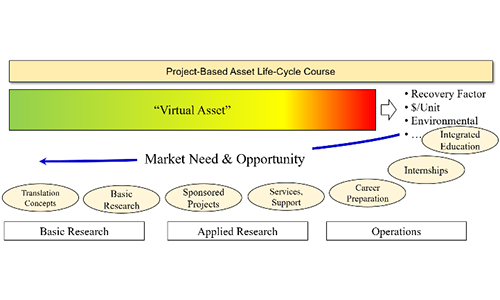Researchers in Energy and Mineral Engineering are harnessing the availability of large amounts of data on energy and environmental systems to perform some of the world’s most cutting-edge research on energy resources.
 Our faculty use techniques from machine learning, artificial intelligence, optimization and statistics to study natural gas production, large-scale infrastructure systems, energy consumption behaviors and energy markets in ways that are relevant to public decision-makers and industry. In research, data analytics allows for powerful hypothesis testing and model validation on highly complex systems. Insights into processes and phenomena can be interrogated over large regions, as opposed to a handful of specific sites. The research skills of our faculty also translate into the classroom, where students get experience using real-world “Big Data” in simulation-oriented classroom environments.
Our faculty use techniques from machine learning, artificial intelligence, optimization and statistics to study natural gas production, large-scale infrastructure systems, energy consumption behaviors and energy markets in ways that are relevant to public decision-makers and industry. In research, data analytics allows for powerful hypothesis testing and model validation on highly complex systems. Insights into processes and phenomena can be interrogated over large regions, as opposed to a handful of specific sites. The research skills of our faculty also translate into the classroom, where students get experience using real-world “Big Data” in simulation-oriented classroom environments.
Specific research topics in this area include:
- Development of web applications for data science applications in the unconventional natural gas sector https://shinysrv.ems.psu.edu/eum19/Virtual_Asset_1_0/.
- Data-driven modeling approaches to analyze the benefits and costs of environmental regulations.
- Smart electric grids and the transition to more efficient and lower-impact energy, electric power and transportation systems.
- Resilience analysis for complex interdependent energy infrastructures
- Data analytics and statistics for seismic fracture identification and re-stimulation decisions.
- Combining decline curve analysis and geostatistics to forecast gas production in unconventional formations
- Geospatial analysis of large-scale renewable energy portfolios
- Design and operation of electricity markets
- The use of mobility data for energy system planning, and to evaluate air quality impacts of urban transportation
- Air quality in energy production environments
- Economics of industrial carbon capture and geologic sequestration

















